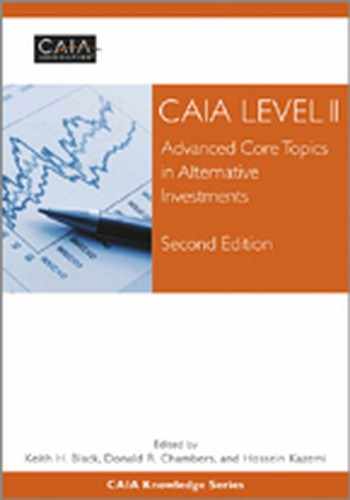29.2 INDUSTRY REGULATION
Asset growth in the managed futures industry has moved in tandem with the growth of regulatory oversight.5 The U.S. Congress acted in 1974 to create the U.S. Commodity Futures Trading Commission (CFTC) as a federal regulatory agency for all futures and derivatives trading. The CFTC's efforts were later joined by the U.S. futures exchanges and the National Futures Association (NFA), an independent, industry-supported self-regulatory body created in 1982.
The NFA, in regulatory partnership with the CFTC, provides the primary oversight in the auditing of member firms. The NFA, as a self-regulatory organization, acts as the principal overseer of FCMs, IBs, CPOs, and CTAs. It carries the primary responsibility to conduct audits, though the CFTC conducts audits as well. The NFA also provides an arbitration program for resolving disputes in the futures industry.
Foreign exchange is one area of the managed futures industry that remains largely unregulated. Futures trading in international currencies came under the purview of the CFTC in 1972, when the International Monetary Market (IMM) was founded in Chicago. The great majority of currency trading is conducted in the over-the-counter (OTC), interbank spot, and forward markets, which are subject to only limited regulation.
As noted, there are a number of regulated entities that participate in the managed futures industry. Some of these are shown in Exhibit 29.1.
EXHIBIT 29.1 CTA, CPO, FCM, and IB Definitions
| CTA | Commodity trading adviser | A person who, for pay, regularly engages in the business of advising others as to the value of commodity and financial futures or options or the advisability of trading in commodity and financial futures or options, or issues analyses or reports concerning commodity futures or options |
| CPO | Commodity pool operator | A person engaged in a business similar to an investment trust or a syndicate who solicits or accepts funds, securities, or property for the purpose of trading commodity and financial futures and options contracts and who either makes trading decisions on behalf of the pool or engages a commodity trading adviser to do so |
| FCM | Futures commission merchant | An individual, association, partnership, corporation, or trust that solicits or accepts orders for the purchase or sale of any commodity for future delivery on or subject to the rules of any exchange and that accepts payment from or extends credit to those whose orders are accepted |
| IB | Introducing broker | A person (other than someone registered as an associated person of an FCM) engaged in soliciting or accepting orders for the purchase or sale of any commodity for future delivery on an exchange who does not accept any money, securities, or property to margin, guarantee, or secure any trades or contracts that result therefrom |
It is useful to distinguish the roles and responsibilities of CTAs versus CPOs. Exhibit 29.2 delineates some of these responsibilities.
EXHIBIT 29.2 CTAs and CPOs Compared
| CTA Responsibilities | CPO Responsibilities |
|
|
If a CTA or a CPO has U.S. investors, it is subject to CFTC regulations and must register with the NFA. If a futures trading firm does not have any U.S. investors, it is not regulated by the CFTC nor is it required to register with the NFA, even if the investments are being traded on U.S. exchanges. Other exemptions to CTA and CPO registration exist. For a current listing, see the CFTC's website (www.cftc.gov).
Trading on behalf of U.S. investors in futures contracts listed on an exchange outside the United States must be approved by the CFTC, but approval is not required for trading outside the United States on behalf of non-U.S. investors. However, those trading on exchanges outside the United States may be subject to the local or national regulatory agencies that oversee those exchanges. For example, the Financial Services Authority (FSA) in London regulates all investment products traded in the United Kingdom, including derivatives such as futures and options.
A firm's registration (CTA or CPO) is dependent on the activities in which a company is engaged. A firm that trades directly for U.S. investors registers as a CTA. In contrast, CPOs pool investors' funds into a collective vehicle, such as a fund or a limited partnership, and then allocate the funds to the underlying managers. These investment vehicles are typically investment companies and are organized in a range of countries. Popular jurisdictions to register fund vehicles include the British Virgin Islands, the Cayman Islands, Luxembourg, and the Channel Islands. These investment companies may or may not be listed on a stock exchange. The Irish Stock Exchange, for example, is used to list a number of these non-U.S. investment companies.
